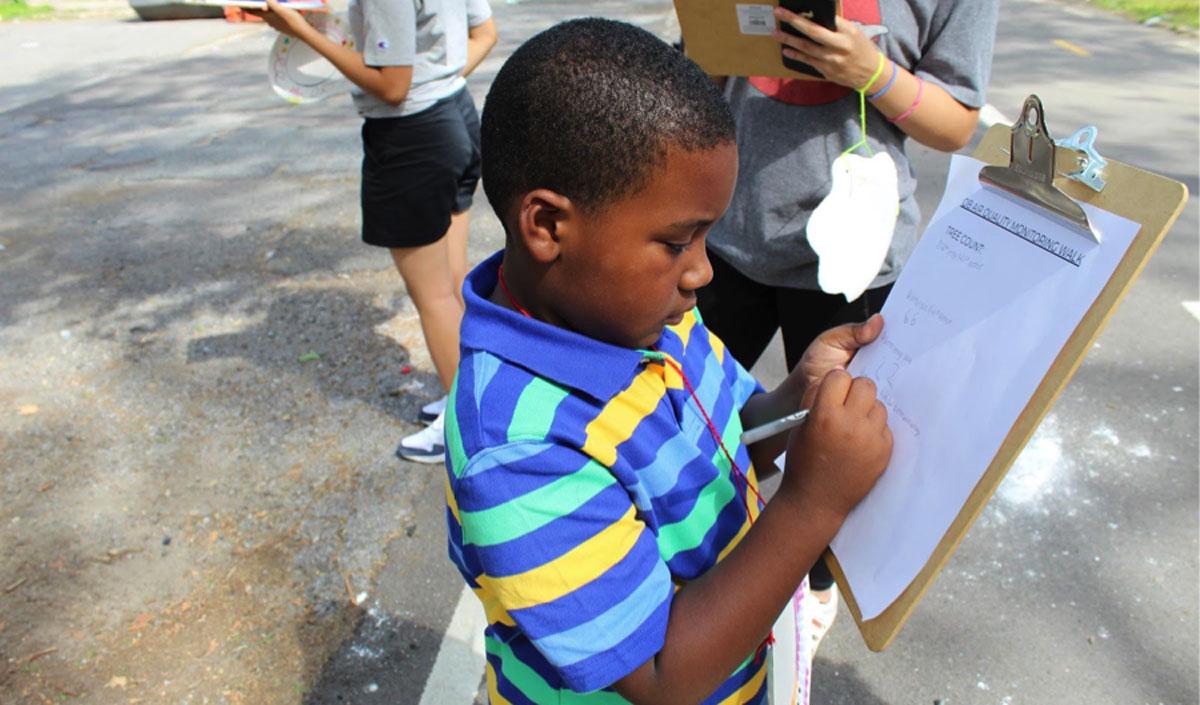
The Queensbridge Tech Lab (QTL) is a branch of the Queens Public Library located in the Queensbridge Houses, the largest public housing development in North America. QTL offers workshops on and open access to a variety of digital and analog tools, from 3D printing and graphic design to sewing and robotics.
QTL is a resource that empowers the Queens community through holistic hands-on technology exploration and mastery. QTL runs The Queensbridge Community Science Project, an interdisciplinary intensive eight-week program focused on environmental exploration as a pathway for participants to harness their creative energies and explore science and technology in real-world settings. Each week focuses on a different topic: air, water, soil, or plant life. While exploring these topics, participants build and use their own digital and analog tools such as air quality sensors, microscopes, and water quality detectors.
During QTL’s air quality workshops, facilitator Tamykah Anthony-Marston, founder of Camp Wakanda, taught participants how to make their own Pollution Catcher using nothing more than a length of string, a paper plate, and petroleum jelly. The Pollution Catcher helped participants visualize air pollution, which is mostly invisible. This exercise helped illustrate how more sophisticated air quality monitors, like the AirBeam2, work. During the workshops, participants examined the technology at work in the AirBeam2, discussed the importance of measuring air pollution and advocating for clean air, and identified known local sources of air pollution - like the vehicular traffic on the Queensboro Bridge. Participants then created a walking route for monitoring air quality around the Queensbridge Houses, were outfitted with AirBeam2s, and went AirCasting. In addition, AirBeam2s were installed around the Queensbridge community to monitor air quality 24/7 throughout the duration of the eight-week program. At the conclusion of the program, participants created an aerial map of Queensbridge using Balloon Mapping then aggregated the environmental data they collected and posted it to the map.
For Sadie Coughlin-Prego, QTL’s Digital Literacy Lead Instructor, the best thing about the AirBeams was the way they sparked participants’ curiosity and served as a catalyst for civic engagement. “The AirBeams were an incredibly powerful and important asset to our environmental exploration”, said Coughlin-Prego. “It allowed for tangible, hands-on, real-time data collection - this directly influenced participants to engage with subjects such as public health and urban environmentalism. Being able to see how a truck passing by impacts our air inspires folks to advocate for themselves and their community - as well as sparking interest and curiosity into how these technologies work from a back-end perspective.”
QTL will continue to host multigenerational programming that bridges public health, accessible monitoring, and urban environmentalism in the future. Please feel free to reach out to Sadie Coughlin-Prego, Sadie.Coughlin@queenslibrary.org, for more information.